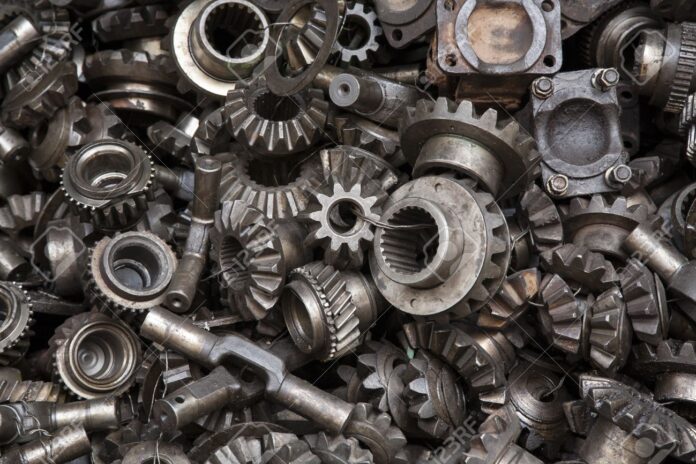https://isohitech.com/ In the world of engineering and machinery, the term “machine parts” is a phrase that encompasses a vast array of components, each with its own unique role and significance. Understanding these elements is essential for anyone involved in the design, maintenance, or repair of machinery. In this article, we’ll delve into the intricate world of machine parts, exploring their types, importance, and how to select the right ones for the job.
H1: Understanding the World of Machine Parts
1. Introduction to Machine Parts
https://mikeshoppingroom.com/ Machine parts are the building blocks of any mechanical system. They include a wide range of components, from the smallest nuts and bolts to complex engines and pumps. Each of these parts plays a crucial role in ensuring the smooth operation of machines in various industries, from manufacturing to transportation.
2. The Significance of Reliable Machine Parts
Reliable machine parts are the backbone of any machinery. They are responsible for ensuring the machinery’s performance, safety, and longevity. Without dependable parts, machines would be prone to breakdowns, reduced efficiency, and even safety hazards.
3. Types of Machine Parts
Machine parts are not one-size-fits-all; they come in various shapes and sizes, each serving a specific purpose. The most common types include bolts, nuts, fasteners, gears, bearings, motors, engines, pumps, and valves.
4. How Machine Parts Function
Understanding how these parts function is vital for anyone working with machinery. From providing structural support to transmitting power, each part has a unique role in the machine’s operation.
H2: Common Types of Machine Parts
5. Bolts, Nuts, and Fasteners
https://incomepultrusion.com/ These small but essential parts hold everything together. Bolts, nuts, and fasteners provide the necessary clamping force to keep parts from coming apart during operation.
6. Gears and Bearings
Gears are responsible for transferring rotational motion, while bearings reduce friction and support moving parts. Both are crucial for the smooth functioning of machines.
7. Motors and Engines
Motors and engines are the powerhouses of machinery. They convert energy into mechanical motion, driving various applications.
8. Pumps and Valves
Pumps move fluids, while valves control the flow. These parts are vital in industries such as plumbing, manufacturing, and oil refining.
H3: Importance of Quality Machine Parts
9. Reliability and Durability
The quality of machine parts directly impacts their reliability and durability. Low-quality parts can lead to frequent breakdowns, resulting in downtime and costly repairs.
10. Efficiency and Performance
Quality machine parts contribute to the overall efficiency and performance of machinery. They ensure that the machine operates optimally, saving energy and resources.
11. Safety Considerations
Faulty machine parts can pose safety risks to operators and the environment. It’s crucial to use high-quality components to prevent accidents.
H4: Selecting the Right Machine Parts
12. Factors to Consider
When selecting machine parts, factors such as material, size, and compatibility with the machine’s design must be taken into account. Poor choices can result in performance issues or even catastrophic failures.
13. Sourcing Quality Machine Parts
Finding reliable suppliers and manufacturers is essential for ensuring the quality of the machine parts used. Research and due diligence are key in this process.
H5: Maintaining and Replacing Machine Parts
14. Regular Maintenance Practices
Regular maintenance is vital to extend the life of machine parts. This includes lubrication, cleaning, and inspections.
15. Signs it’s Time to Replace
Recognizing when machine parts are worn or damaged is crucial. Timely replacement can prevent costly breakdowns and accidents.
In conclusion, machine parts are the unsung heroes of the machinery world. They ensure that our vehicles run, our factories operate, and our appliances function. Quality machine parts are essential for reliable performance, efficiency, and safety. Selecting the right parts and maintaining them properly can save time, money, and even lives.
5 Unique FAQs
1. What are the most common machine parts used in manufacturing?
Common machine parts in manufacturing include bolts, gears, bearings, and motors, as they are essential for the operation of various machinery.
2. How can I ensure the quality of machine parts I purchase?
To ensure quality, research suppliers, ask for certifications, and perform regular inspections of the parts you purchase.
3. What are the signs that machine parts need replacement?
Signs include unusual noises, decreased performance, and visible wear or damage on the parts. Regular maintenance checks can help spot these issues.
4. Can I replace machine parts myself, or should I hire a professional?
It depends on your expertise and the complexity of the machinery. For critical components, it’s often best to hire a professional.
5. Are there eco-friendly options for machine parts?
Yes, eco-friendly machine parts made from sustainable materials are becoming more widely available, contributing to a greener future for machinery.


